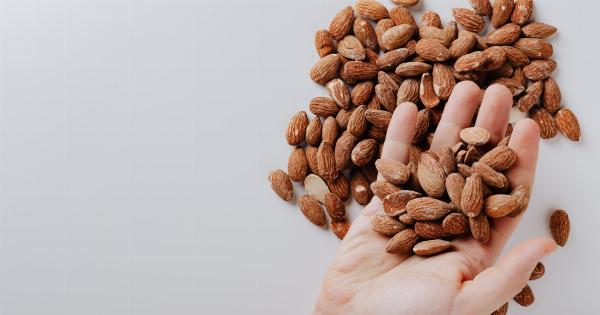When embarking on a diet, many individuals hope to shed excess weight and improve their overall health. However, it’s important to approach weight loss in a manner that prioritizes fat loss while preserving muscle mass.
Unfortunately, inadequate nutrition, excessive calorie deficits, and certain exercise routines can lead to the unintended consequence of muscle loss. Understanding the signs that indicate you may be losing muscle on your diet is crucial for making the necessary adjustments to achieve your fitness goals. Let’s delve into these telltale signs and explore strategies to prevent muscle loss.
1. Reduced Strength and Endurance
One of the primary indicators that you may be losing muscle on your diet is a noticeable decrease in strength and endurance. As you lose muscle mass, your ability to perform physical activities requiring strength and endurance diminishes.
You may find yourself struggling to lift weights that were once manageable or experiencing fatigue and breathlessness during workouts that used to feel easier. If your strength and endurance have significantly declined since starting your diet, it’s a sign that you might be losing muscle.
2. Loss of Muscle Definition
Muscle definition refers to the visibility of muscle fibers beneath the skin. When you’re losing muscle on your diet, you’ll likely notice a decrease in muscle definition.
Your muscles may appear flatter and less prominent, even if you’ve made progress in reducing overall body fat. This loss of muscle definition is an indication that your body is breaking down muscle tissue to meet its energy needs. Keeping an eye on changes in muscle definition can help you determine if your diet is leading to muscle loss.
3. Slower Metabolic Rate
Muscle is metabolically active tissue, meaning it requires energy to maintain its structure and function. The more muscle mass you possess, the higher your resting metabolic rate (RMR) tends to be.
When you’re losing muscle on your diet, your RMR may decrease, resulting in a slower metabolic rate. This can make it more challenging to burn calories and maintain a healthy weight in the long run. If you notice a decline in your metabolic rate, it could be a sign that you’re losing muscle mass.
4. Increased Fatigue and Recovery Time
Another telltale sign of muscle loss on your diet is increased fatigue and longer recovery time. Muscle tissue plays a vital role in supporting your body during physical activities and aiding in post-exercise recovery.
When you’re losing muscle, tasks that were once easy may become more tiring, and you may find it takes longer for your muscles to bounce back after workouts. If you’re experiencing prolonged fatigue and slower recovery after exercise, it’s likely that muscle loss is occurring.
5. Changes in Body Composition
Monitoring changes in your body composition is essential for gauging both fat loss and muscle gain or loss. If you notice a significant decrease in lean muscle mass during your diet, it’s a clear indication that you’re losing muscle.
While the number on the scale may decrease, it’s crucial to focus on maintaining or increasing muscle mass for optimal health. Regularly tracking your body fat percentage and muscle mass can help you identify any changes in body composition that may be occurring as a result of your diet.
6. Increased Hunger and Cravings
Inadequate calorie intake is often a culprit behind muscle loss. When you’re not consuming enough calories to support your body’s needs, it becomes challenging to preserve muscle mass.
As a defense mechanism, your body may increase hunger signals and trigger cravings for calorie-dense foods. These hunger pangs and intense cravings are the result of your body’s attempt to obtain the nutrients necessary for energy production.
If you’re constantly hungry and experiencing strong cravings while dieting, it’s a sign that you may be losing muscle.
7. Lack of Progress in Physical Performance
If you’ve been consistently working out without noticing improvements in your physical performance, it’s likely that muscle loss may be occurring. When muscle mass declines, your strength, endurance, and overall performance suffer.
Whether it’s a slower running pace, fewer repetitions during strength training, or a decrease in flexibility and mobility, a lack of progress in physical performance is an indication that your body is losing muscle mass. Assessing your progress regularly can help you identify any changes in physical performance that may be linked to muscle loss.
8. Presence of Joint Pain or Injuries
Loss of muscle mass can impact the stability and support provided to your joints. When your muscles weaken, it increases the stress on your joints, making you more prone to injuries and joint pain.
If you notice an increase in joint pain or experience injuries more frequently than before, it’s possible that muscle loss is to blame. Strengthening your muscles through proper nutrition and appropriate exercise can help alleviate joint pain and reduce the risk of injuries.
9. Negative Changes in Body Measurements
In addition to tracking changes in body composition, paying attention to specific body measurements can provide valuable insights into potential muscle loss.
While weight alone cannot determine whether muscle is being lost, combining weight measurements with body circumference measurements can offer a more comprehensive understanding. If you notice notable reductions in measurements around areas such as arms, thighs, or calves, it indicates a potential loss of muscle mass in those regions.
Regularly measuring key body areas can help you identify any negative changes that might be indicative of muscle loss.
10. Difficulty Maintaining Weight Loss
Lastly, difficulty in maintaining weight loss is an often-overlooked sign of muscle loss. When you lose muscle mass, your body’s overall metabolic rate decreases, making it easier to regain weight once you resume normal eating habits.
If you’ve experienced multiple instances of regaining weight quickly after completing a diet, it suggests that muscle loss occurred during your weight loss journey. The loss of muscle mass not only hinders weight maintenance but also makes subsequent weight loss attempts more challenging.
Conclusion
Recognizing the telltale signs that indicate you may be losing muscle on your diet is crucial for optimizing your weight loss journey and overall health.
Reduced strength and endurance, loss of muscle definition, slower metabolic rate, increased fatigue and recovery time, changes in body composition, increased hunger and cravings, lack of progress in physical performance, joint pain or injuries, negative changes in body measurements, and difficulty maintaining weight loss are all signs that muscle loss may be occurring.
By incorporating strategies such as consuming adequate protein, incorporating resistance training into your exercise routine, and avoiding excessive calorie deficits, you can prevent muscle loss and promote fat loss to achieve your desired body composition and fitness goals.




























